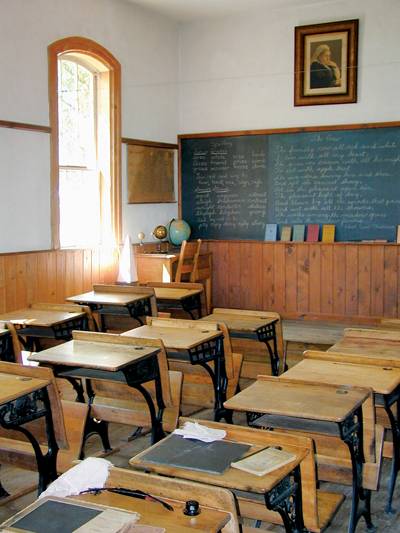HASENMILLER: Capitalism could ease current budget strains

In the tight ecomony, one answer lies in the hands of parents and the public education system, writes Blake Hasenmiller. Paying for education may be the answer. Photo Courtesy: Sxc.hu/vhansen
February 23, 2009
The current state of the economy is straining the budgets of individual citizens, businesses, state governments and the federal government. One way to help ease this strain on all parties would be to end one of the largest subsidy programs in the country: public education.
According to economist and University of Maryland College Park senior research scientist, John Lott, in the early 19th century, many politicians started to become concerned students attending Catholic schools would grow up to become criminals. This is because Catholic schools tended to focus on teaching things like reading, writing and arithmetic rather than the religious values Protestant schools tended to focus on. This lack of religious values, they reasoned, would cause an increase in crime.
In order to combat this, the states began to subsidize Protestant schools. These subsidies were given based on the number of students taught. Because of this extra monetary incentive, however, Protestant schools began attempting to attract Catholic students and therefore began to teach more of what the Catholic schools did — reading, writing and arithmetic — essentially causing the politicians’ plan to backfire.
To combat this, subsidies were given only for attracting students whose homes were nearest to that particular school. The regulation continued and grew until the states simply decided to take over the subsidized schools, eliminating things like competition and profit incentive from most of the education sector.
Despite their origins, we decided to do the same thing we do with most outdated regulations: Keep them forever. We still lack competition, and therefore all the wonderful things that come with it — things like the incentive to increase quality and lower prices. In addition, we get new regulations and increased government spending all the time for things like early childhood education and No Child Left Behind.
A far better solution would be to eliminate public education entirely and replace it with an educational system run by profit motive. Instead of spending your entire life paying for everyone else’s education through taxes, the people consuming the education would be the ones paying for it.
In 2006, the Federal Government spent over 96 billion dollars — about 3.4 percent of its budget — on education. Money the taxpayer could save if public education were eliminated.
In 2008, the state of Iowa spent over 3.4 billion dollars — or 58.9 percent of its budget — on education. Imagine having your state income tax burden reduced by 58.9 percent. That would be a savings of $627 per year for someone making $25,000 per year, $1,666 for someone making $50,000 per year, $2,902 for someone making $75,000 per year or $4,226 for someone making $100,000 per year.
In 2006-2007, 46.33 percent of property taxes paid in Ames also went toward education. The higher property taxes apply to businesses as well, so not only do you have to pay them in the form of increased residential taxes or higher apartment rents, but also in the prices of everything these businesses sell. Property taxes increase the cost of doing business, and some of this cost is passed on to the consumer in the form of higher prices.
All of this tax money — the property taxes, state income taxes and federal income taxes — would be saved every year if public education was eliminated. This money could then be used, among other things, for the purchasing of education.
And in return we would get competition in our schools. Profit incentive would motivate schools to respond to what students and parents desire in an attempt to attract more students. Our schools would be run by people who, through their greed, very legitimately care about the quality and price of education rather than government bureaucrats.
All it would take is a little bit of capitalism.
— Blake Hasenmiller is a senior in industrial engineering and economics from De Witt.






